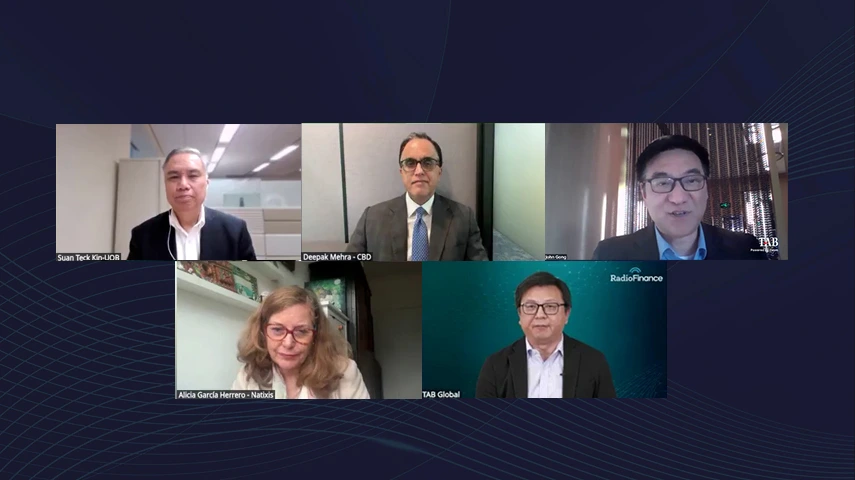Interviewed by Foo Boon Ping
On June 21, The Asian Banker held the 2024 Future of Finance China Summit in Beijing, themed "Challenges and Vision". The year 2024 is expected to be a challenging one globally due to intensified geopolitical tensions and increased trade protectionism, and inflation-induced slowdown of the global economy.
Steven Barnett, Senior Resident Representative in China of the International Monetary Fund (IMF), and Yaser S. Abu-Mostafa, Professor of Electrical Engineering and Computer Science, California Institute of Technology (Caltech), delivered keynote speeches and together Zhang Jun, dean of School of Economics at Fudan University engaged in a leadership dialogue on the “Outlook on China’s economy and financial services industry in a turbulent world", moderated by The Asian Banker founder and chairman, Emmanuel Daniel, and was live-streamed globally.
In his address, Barnett spoke of the turbulent, tepid or transformative outcomes that global economic performance in the 2020s may be remembered in history for. He highlighted IMF’s expectation that China will maintain productivity and consumption growth, though consumption levels remain low. IMF research indicates that the global trade-to-GDP ratio is gradually recovering, with China's trade activity notably high. However, China faces challenges such as modest growth prospects and the need to rebuild fiscal buffers, which require improvements in productivity, industrial policy changes and structural reforms to achieve the transformative outcome.
Yaser S. Abu-Mostafa in his speech on AI, emphasised the dual impact on the financial and labour markets. First, the direct effect of AI-enabled smart finance that creates new (human-impossible) capabilities and tasks that humans were previously unable to perform such as high-frequency trading and risk forecasting; indirectly, technology has always helped to improve human productivity, first by automating and replacing manual labour, and the AI revolution that will replace intellectual labour as well. It is expected that by 2030, AI will be able to automate all tasks that require conventional intelligence, including transportation, customer service, healthcare, and marketing.
The leadership dialogue explored China's economic recovery and the role of the financial sector, especially its financial markets, in supporting growth while maintaining stability. Zhang noted a decline in real estate investment, with a 9% decrease in the first four months of 2024, which will need to be offset by higher levels of consumption and productivity, especially from technological innovations amid China’s impending demographic cliff with the shrinkage of its working age population. Zhang emphasised that Chinese policymakers are cautious about overstimulation of demand to enhance investment levels and will focus on promoting high-quality development and innovation instead.
Professor Yaser observed that China has been excellent in the adoption and application of innovation and its next challenge in the era of generative AI will be in creating innovation. This will require a combination of talent, investment and cultural environment to enable and realise.
Finally, the panellists discussed the evolving science of measuring economic activities and growth and if today’s economic data and statistics truly reflect the scale and growth of China’s increasingly digitalised and virtual economy, which may already be the world’s largest.

Customers in Malaysia increasingly expect international payments to be as seamless as local transfers. At a closed-door roundtable convened by TAB Global with Visa, participants examined how banks are adapting to these expectations while…

The Japan Banking Innovation Conference 2025, held at The Westin Tokyo, convened over a hundred senior banking executives, fintech leaders, policymakers and technology pioneers to discuss the fundamental shifts redefining financial services.

As the global banking industry braces for a challenging 2025, it faces economic headwinds, geopolitical tensions, trade realignments, and the push for sustainability and technological innovation

The AWS Financial Services Symposium Singapore 2024 showcased how AI, data, and cloud technologies are revolutionising financial services. Industry leaders from AWS and HSBC shared insights into advancing innovation, regulatory responsibility…

By continuing to browse this website, you agree to our privacy policy.